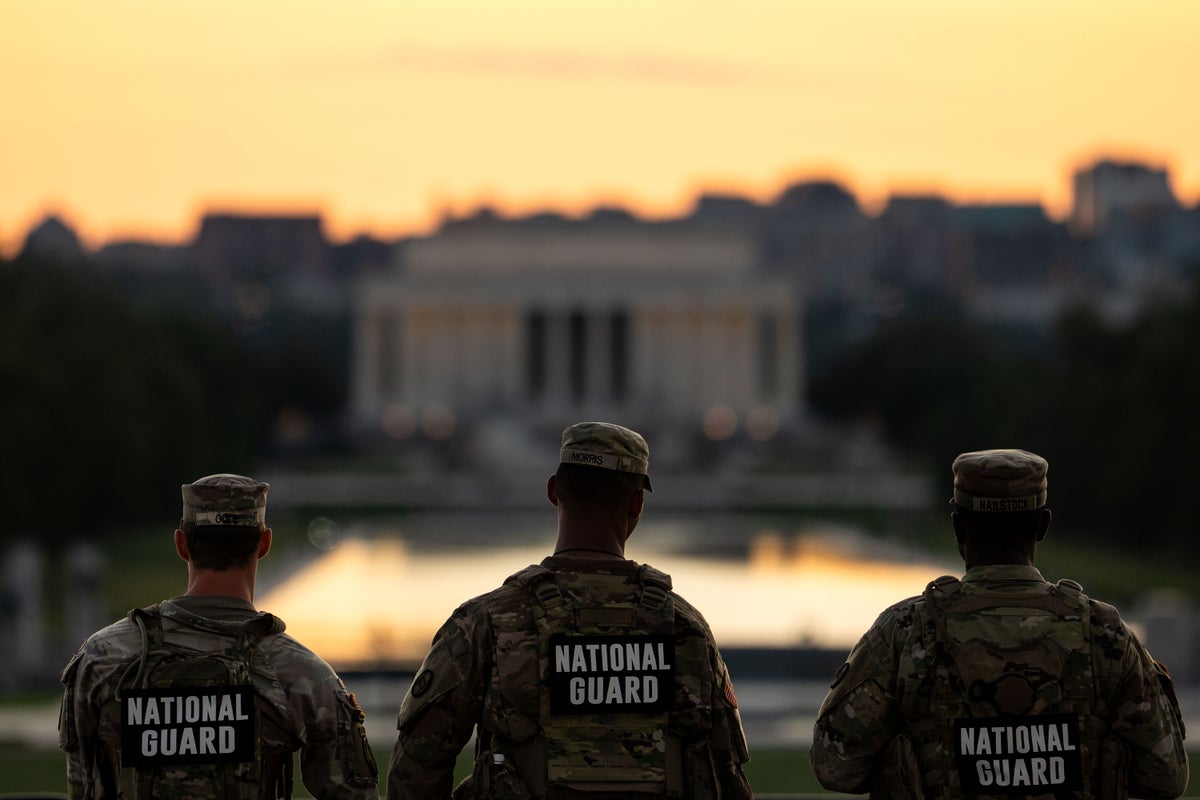URGENT UPDATE: Washington D.C.’s Attorney General Brian Schwalb has just filed a lawsuit against the Trump administration over the controversial deployment of the National Guard in the capital. This legal action comes as Republicans in Congress are reportedly drafting legislation aimed at increasing federal control over D.C., including making the attorney general a political appointee.
The lawsuit, filed on July 13, 2023, accuses President Donald Trump and senior defense officials of violating the Posse Comitatus Act, which prohibits using military forces for domestic law enforcement. The complaint arises after more than 1,300 National Guard members were dispatched to patrol the city, a move the administration claims was necessary to combat rising crime. However, D.C. has seen a decline in crime rates in recent years.
“This is not just about law enforcement — it’s about our right to self-govern,” Schwalb stated in the lawsuit. He argues that Trump’s actions have harmed local businesses and tourism, inflamed tensions with law enforcement, and infringed upon D.C.’s limited self-governing authority.
In a swift response, White House spokesperson Abigail Jackson defended the National Guard’s deployment, asserting that Trump is acting within his rights to protect federal assets. “This lawsuit is merely an attempt to undermine the President’s successful operations to stop violent crime,” Jackson remarked.
As the lawsuit unfolds, the House Oversight Committee is working on around 14 bills that aim to revise the city’s criminal code. Notably, one proposed bill would transform Schwalb’s role into a political appointment, giving Trump more influence over D.C.’s judicial system.
Other proposed legislation includes lowering the age for trying juveniles as adults from 16 to 14 years, eliminating the city’s Judicial Nomination Commission, and introducing fines for individuals sleeping outside. These bills intend to enforce stricter controls on crime and homelessness, mirroring policies Trump has previously advocated in other cities.
The implications of these legislative moves are significant, as they could pave the way for greater federal oversight in D.C., a district that lacks statehood. While the bills have yet to be finalized, they reflect a growing trend of federal intervention in local governance, particularly in Democratic-led cities.
The urgency of this situation cannot be overstated. With the House Oversight Committee expected to finalize details soon, the potential shift in power dynamics within D.C. governance is approaching rapidly.
As this story develops, the impact on residents and local governance will be crucial to monitor. Stay tuned for updates on this unfolding legal battle and its ramifications for the nation’s capital.
